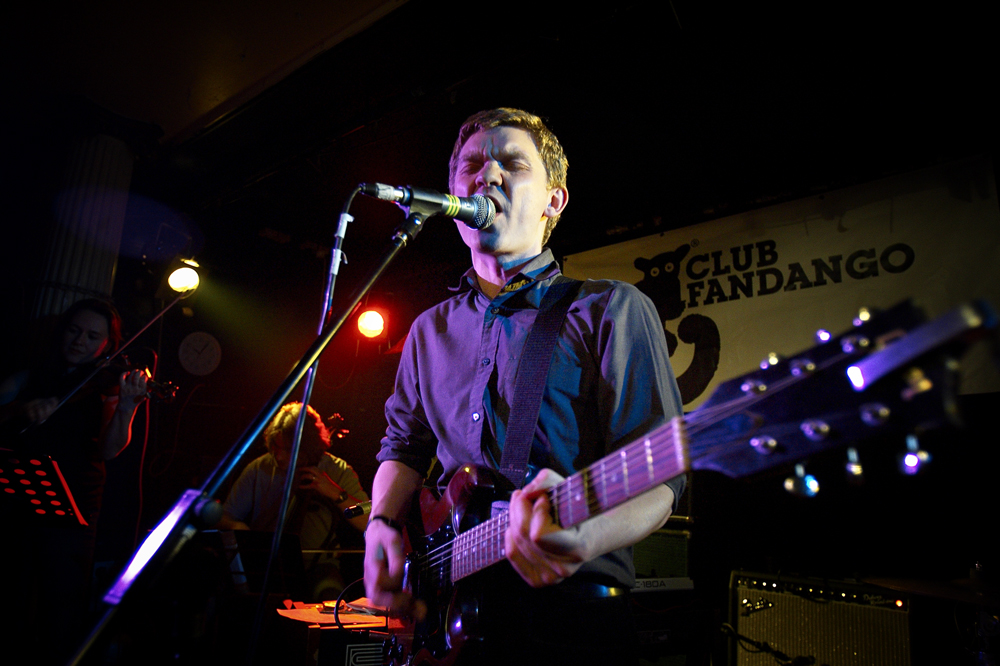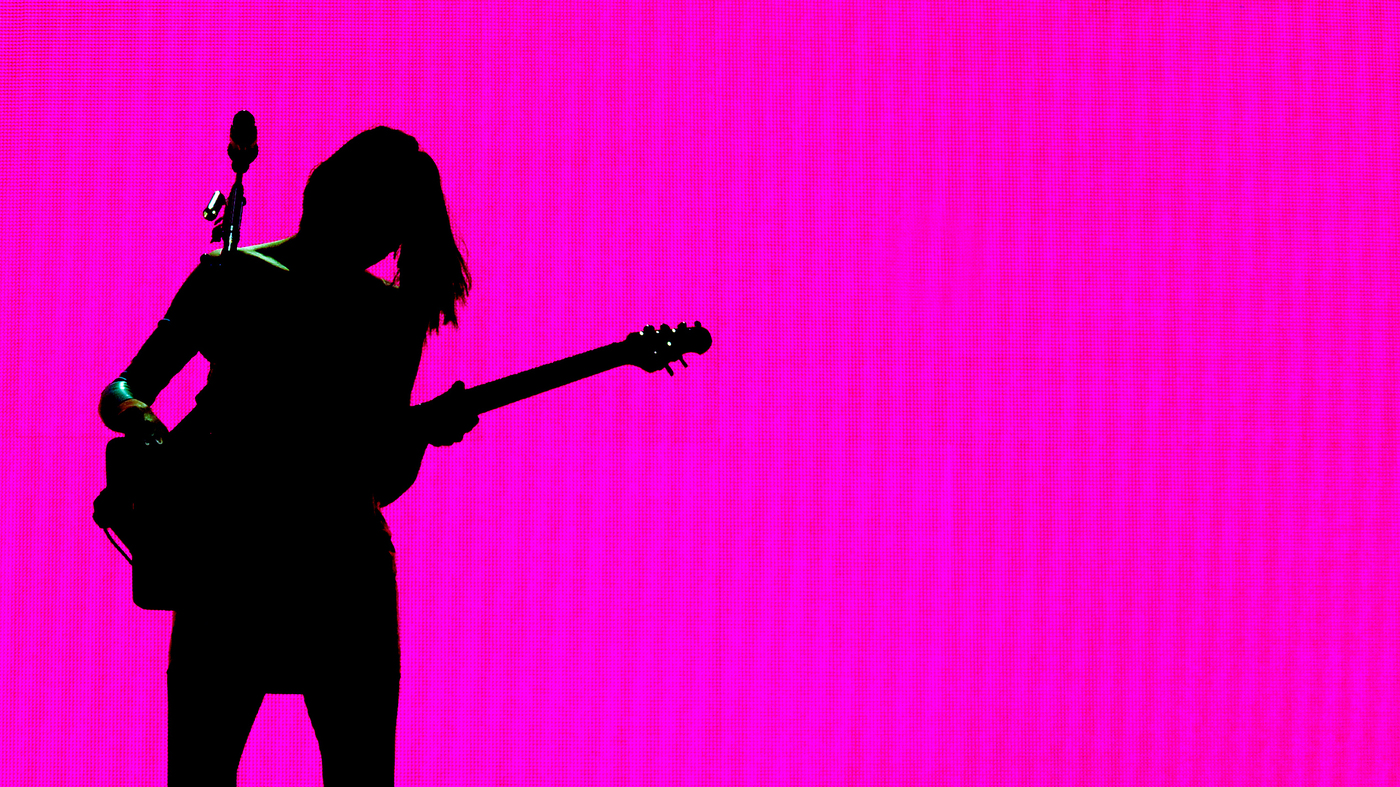MUSIC
Nowadays it is common to hear the term "Lo-Fi" within the music scene,
it is a term that many of us quickly place as a low quality recording - and it
is that simple. More specific features are recordings made with low-end recording
equipment that are accessible to many and avoid the high costs of recording in a
professional studio. Nowadays it is still valid since many artists are not so
interested in great productions, but in capturing their music as naturally as possible.
We are going to dedicate this little note to talk about the history of “Lo-Fi”
music, the main exponents and the importance it has in the music scene.
As I said, Lo-Fi music is one whose sound quality is lower than the standard
base in the music industry. Many musicians - if not the majority - have
experimented with this technique in its beginnings, which is why there are
always publications of oddities, sides b, unpublished songs, etc.
It seems to be the last resort of record labels when there is no new study
material.
But what does Lo-Fi music matter?
Well, it is simply interesting, there are many points for and against. The main
point - in my opinion - is that they are a “sincere” record of the musician, he
exposes it to us in the most natural way possible; Despite the quality, there
are songs that give us a feeling, and when that happens it means that the
talent is born by the artist.
Nowadays with technological advances they help a lot to “make up” music;
For example, if you sing out of tune, with editing programs you can fix it so
that it doesn't show. On the other hand - taking the same example - we can
hear Bob Dylan who despite not having an excellent voice found his style
that is excellent with music, which even immortalized him.
Although the term as a musical genre arises in the 80s -by the origin of the
cassette-, the first record we can consider Lo-Fi is given to Lionel Mapleson,
who recorded in a phonograph cylinder, between 1900 and 1904, staged at the
Metropolitan Opera House. The recordings in this type of cylinders are really
of very, very low quality - in fact, every time they are played, they wear more
and more. Even so, the beauty lies entirely in the fact that the recordings are a
record of a live act and the talent of the musicians. It is a record that causes
nostalgia to realize that it is more than 100 years old.
music term - were the records made by Alan Lomax in the 30s and 40s. Lomax,
along with his father, traveled to southern states United to enter African-American
prisons with a recording team and thus record the music that was generated behind
the walls: the origin of the blues.
These records, despite obviously not being professional recordings, record the
essence and root of the blues later. The recordings are songs that the prisoners
made while performing their respective works, these rhythmic songs helped
them forget their marginal and racist situation at times, they exposed their laments
in groups and it is really loaded with feelings.
Later in folk music we found many Lo-Fi recordings, this technique undoubtedly
favored them since they perfectly adjusted to their musical style for not having
large instrumentations and for their approach more to acoustic instruments - where
they only needed to record guitar and voice, mainly -. Who took the big leap of
bringing the Lo-Fi technique to the most popular music was nothing more and
nothing less than Bob Dylan with his album
Basement Tapes, being a bootleg of 1967. In the beginning said album was
only a record of the session where Bob Dylan locked himself with The Band
to be able to clear himself of the great fame and rest from the motorcycle accident
he suffered. The sessions were never intended to become an album, but later the
label caught it, edited and produced to deliver a "decent" album - speaking in
sound quality - but really the origin is totally Lo-Fi.
Actually since those times, due to the appearance of the cassette and economic
recorders, it allowed countless projects to start recording in their own garage
or house, if we tried to list everyone it would be almost impossible.
Daniel Johnston is one of the most recognized Lo-Fi musicians since he recorded
his first -and most acclaimed- albums in his garage with a cassette recorder,
despite the low quality he is able to perceive the essence of his music that no
more It led to worldwide recognition.
Since then we have been immersed in Lo-Fi recordings, musicians such as Beck,
Pavement, Sebadoh, Chris Knox, Bill Callahan, Bob Log III, etc. They have
worked in this way, some have begun to study to record professionally, but others
continue to use this technique to be able to transmit the crudest sound possible.
Within musical genres Black Metal and Punk are the most recognized for adopting
the technique, both for the philosophy of DIY (Do It Yourself / Do It Yourself),
and because it enriches the band's sound.
As in the case of Bob Log III, which in itself in its live acts tries to find the
Lo-Fi essence
Basically, that is what gender is summed up, the exponents are innumerable, it is
not one of the most popular genres -because commercial music precisely seeks to
deliver the best possible quality- but today it is still in force, it has its strange and
unique essence than another form could not be transmitted. Bands like Unknown
Mortal Orchestra, Ariel Pink's Haunted Graffiti, Devendra Banhart, John Maus,
Mac DeMarco, Neutral Milk Hotel and many more have adopted this style
despite having great labels.




